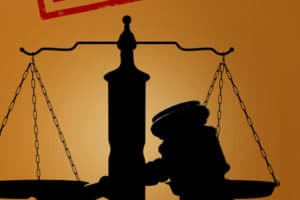
Upon conviction for any criminal charges in Texas, your offense becomes a part of your permanent — and public — record. But did you know that you can also have a record even if you did not commit a crime?
Just as convictions do, arrests and criminal charges remain on your record, even if the prosecutor dropped the charges or a jury acquitted you. This information shows up every time someone runs a background check on you. The good news is that you may qualify for expunction for a past arrest, or non-disclosure for a past conviction. An expunction and non-disclosure lawyer in Rockwall can help you pursue either option.
To learn how, contact the Law Offices of Randall B. Isenberg today at 214-696-9253, and schedule a no-cost consultation.
What Is the Difference Between Expunction and Non-Disclosure?
In Texas, expunction (also sometimes called expungement) refers to the legal process of eliminating records of an arrest or criminal charges from your public record.
As outlined in Chapter 55 of the Texas Criminal Code, expunction will only purge arrests for which the state never charged you. Criminal charges eligible for purge include those for which you got an acquittal, a pardon, or a dismissal, or for which you completed a pre-trial diversion program. You can also request expungement if charges resulted from a case of identity theft.
This process leads to the literal destruction of your arrest records and gives you the legal right to deny that the arrest took place, even under oath.
An order for non-disclosure ensures that a past conviction does not show up on your record when someone runs a background check on you. Outlined in the Texas Government Code (Article 411), this process does not eliminate your conviction from your record — and it remains accessible to the courts, law enforcement, and governmental agencies related to childcare and safety.
However, a non-disclosure order allows you to legally deny having an arrest record.
You can request an order of non-disclosure if you completed a deferred adjudication program, but not if you entered a guilty or no-contest plea, or if a jury convicted you.
Which Records Can an Expunction Lawyer Help Clear?
In Rockwall, an expunction lawyer can help you clear your record of dismissed charges, arrest records, misdemeanor juvenile offenses, overturned convictions, pardoned offenses, and anything that is on your record because someone stole your identity and committed a crime in your name.
However, even if your case does not fall into one of these categories an expunction lawyer in Rockwall may still have legal means to assist you.
What Are the Requirements for Expunction in Rockwall?
If you went to trial on the charges in question, you qualify for expunction only if you received a pardon or acquittal at trial, and as long as the court did not convict you on another crime related to this incident.
If you did not go to trial on the charges you want expunged, you must not have been arrested for a probation violation, fled while on bail for those charges, been convicted, or received court-ordered probation for that crime.
To qualify for expunction, the statute of limitations must have run out or the court must have voided the charges or the prosecutor no longer needs your records or the prosecutor dismissed the charges or the statutory waiting period ended.
What Is the Process for Having Arrest Records Expunged?
Your expunction lawyer will prepare a legal petition and submit it to the court in the jurisdiction of your original charges. Your lawyer must also name any persons or agencies that have a copy of your record as a respondent and submit the petition to each one, which allows them to comment on or contest the expunction.
The court will then schedule a hearing, at which you and your attorney must appear and present proof that you have met the requirements necessary for expungement.
Respondents have the option to appear and argue against the petition.

Which Records Can a Non-Disclosure Order Address?
A non-disclosure order prevents the public from accessing records related to specific types of Texas criminal convictions.
Any offense categorized in the statutes as a Class B misdemeanor or below potentially qualifies for a non-disclosure order as long as you received deferred adjudication — and as long as you met all the requirements associated with the deferred adjudication.
Some types of offenses do not qualify as sealable under a non-disclosure order. Those include murder; injury to a child, a disabled person, or a vulnerable senior; child abandonment or endangerment; family or domestic violence; violation of a protection order; kidnapping; or any sex crime.
To qualify for a non-disclosure order, you must have complied with all terms of your deferral or probation agreement. You must also wait the required time period and have no subsequent arrests or indictments.

What Is the Waiting Period for Expunction or Non-Disclosure?
To request an expunction, the statutory waiting period must have expired for that offense. You can petition the court early; however, the court may decline to act. If the court does agree to an early expunction, the prosecutor often retains your file through the statutory limitation period.
The statutory waiting periods are listed below, in order of severity.
Offense Level |
Waiting Period |
| Class C misdemeanor | 180 days from the date of arrest |
| Class B misdemeanor | 12 months from the date of arrest |
| Class A misdemeanor | 12 months from the date of arrest |
| Allowable felonies | 3 years from the date of arrest |
Misdemeanor offenses qualify for non-disclosure as soon as you finish probation or deferral. If your crime involved weapons, violence, or sex-related charges, however, the statutes require you to wait until three years after you finish deferral or probation. For felony offenses, you must wait ten years after deferral or probation.
Ask a Rockwall Expunction and Non-Disclosure Lawyer Your Questions Today
Petitioning the court for an order of non-disclosure or expunction requires a clear understanding of the law. The court can deny or reject your petition for the smallest mistake or omission.
The Law Offices of Randall B. Isenberg would like to offer you a free consultation with a Rockwall expunction and non-disclosure attorney. This will allow you to ask questions and determine if you qualify to apply for an expunction or an order of non-disclosure.
Call us today at 214-696-9253 to schedule an appointment.










